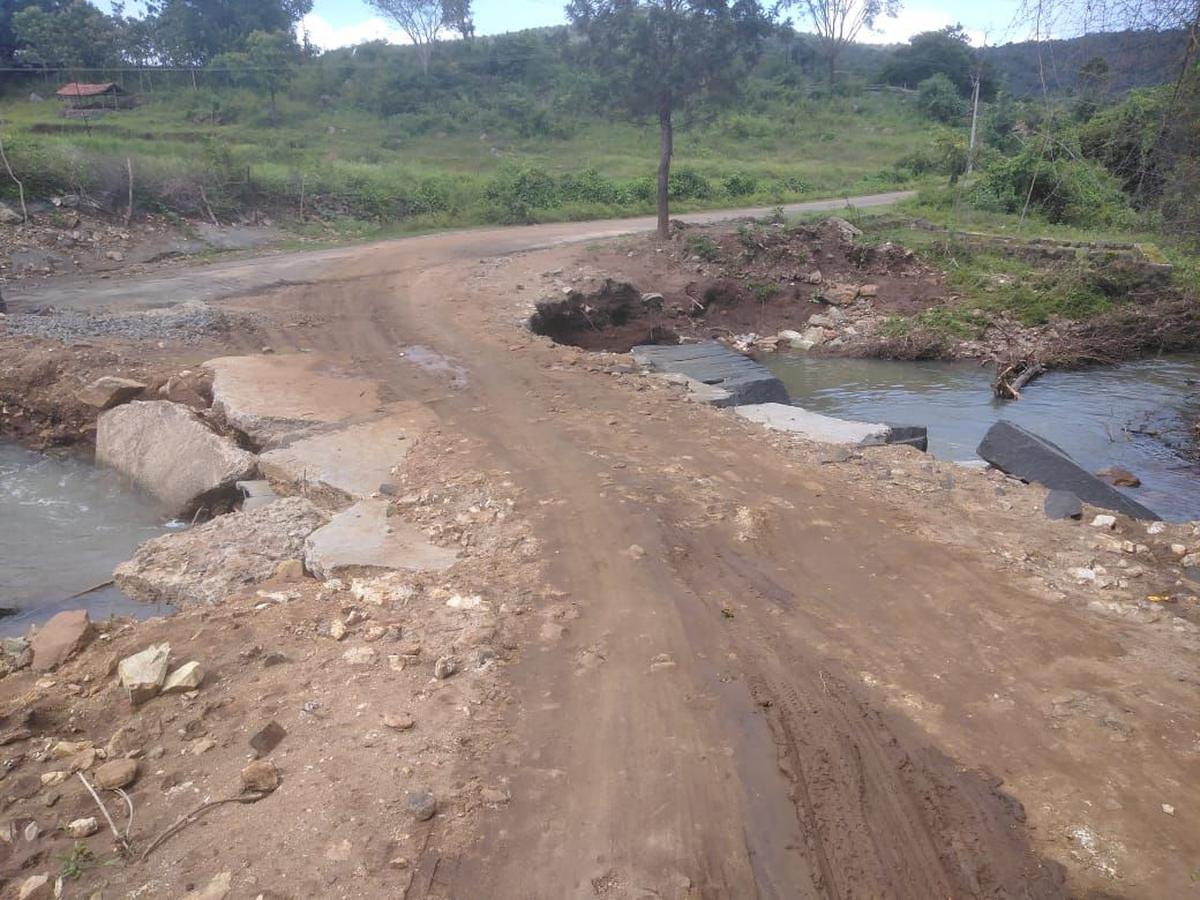
Students of 9 hamlets in Bargur hills unable to go to school as damage to temporary roads stops bus services
The Hindu
Heavy rain in the hill area for two weeks led to flash floods in two streams, damaging temporary mud roads, and affecting the movement of vehicles; residents have called for urgent action
Two temporary mud roads on the Thamaraikarai–Madam road in Bargur Hills that were damaged due to rain have halted Tamil Nadu State Transport Corporation bus services to nine hamlets in the hill areas for over a week now, affecting students and members of the public.
Currently, work is in progress to construct high-level bridges across streams at Eratti and Devarmalai and mud roads were laid near the work areas for vehicle movement. Heavy rain in the hill area for two weeks led to flash floods in the streams, damaging the mud roads and affecting the movement of vehicles. Since students and workers in nine hamlets depend on these bus service to reach schools and their workplace respectively, non-operation of the bus for nine days has severely affected them. In the absence of bus services, teachers are also facing difficulties in reaching their school at Devarmalai and have to depend on private taxi services.
In the absence of alternative modes of transportation, many students cannot reach their schools and stay at home. “Repair work needs to be carried out to the damaged roads on a war-footing”, said a resident P. Veerabadran who added that only two-wheelers can use the roads now.













